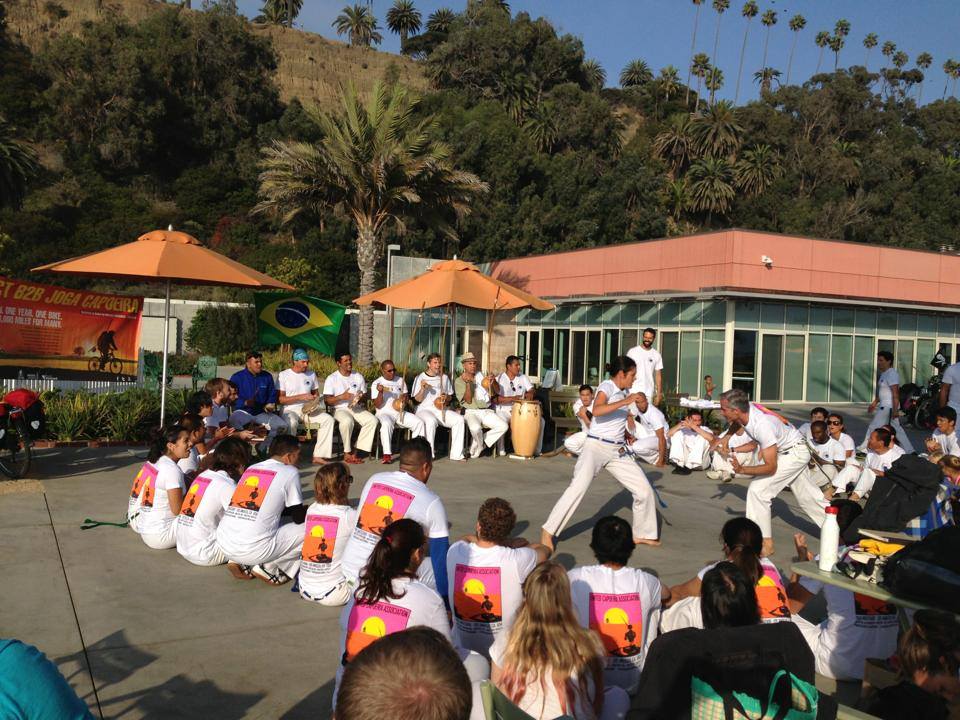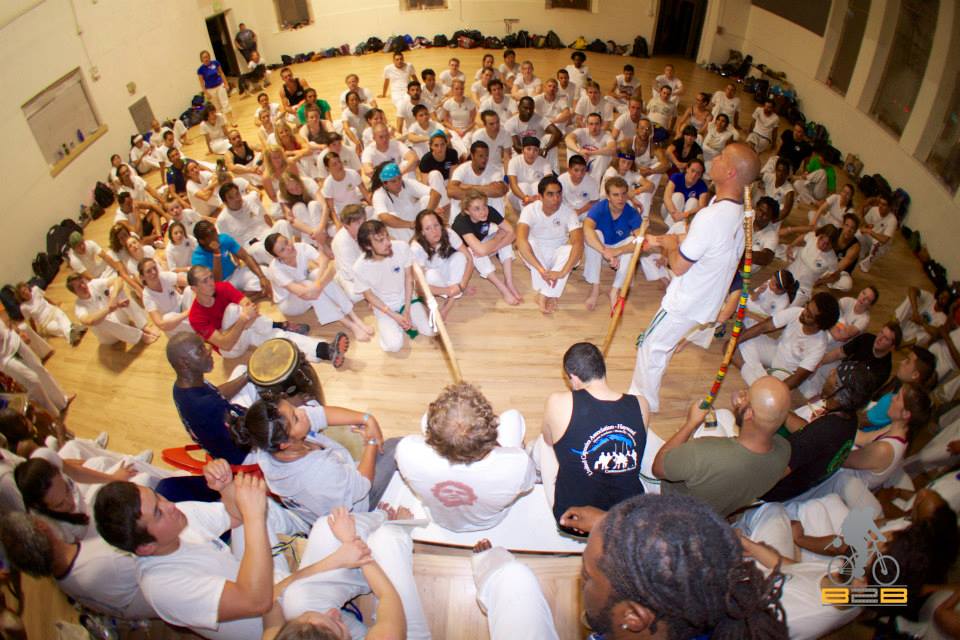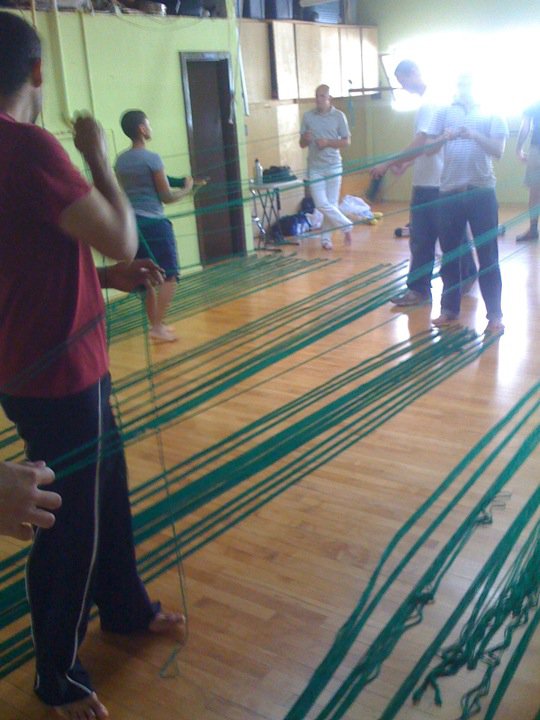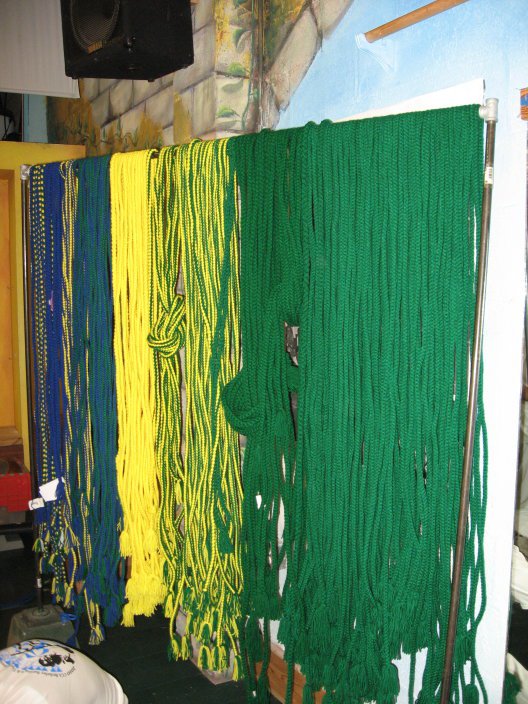This feature is designed to spark your interest in researching the world of capoeira's vocabulary, history, and philosophy.
Our Capoeira Wiki-Word series invites you to research the word of the week and post your definition(s) and translations. At the end of each week, the entries will be reviewed and then summarized into a translation and a definition of the Capoeira Wiki-Word of the week.
Submit your entries in the comments section below!
This week's Capoeira Wiki-Word is:
Batizado
ps
Don't forget to cite your sources
Update




The letter 'z', when found between two vowels is pronounced in Portuguese with what we are accustomed to in English as a 's' sound. For example: soup, surreal, serpent (there are exceptions, but batizado is not one of them)
Batizado translates from Portuguese to English as baptized, not baptism or the ceremony of a baptism. While this may seem like a subtle distinction, it isn't from a Portuguese speaker's perspective. As we learn more about capoeira, we need to value the combination of heritages that gave seed to the art we know and love.
Also, it is important to understand that Mestre Acordeon's teacher, Mestre Bimba, created this ceremony.
From pages 65-70 of the book, "The Sage of Mestre Bimba" by Raimundo Cesar Alves de Almeida's, Mestre Itapoan.
During the batizado ceremony, each new student received a nickname. From then on, he would be known by that name in the academy and in the world of Capoeira. The nickname would become his nome de guerra, his battle name. The nicknme might be based on his physical type, the neighborhood he lived in, his profession, the style of clothes he wore, his attitude, or something he was particularly gifted at.
... Mestre (Bimba) said that in the past, the nickname also served to disguise a capoeirista's idetity, making it hard for the police to find him.
... When a student was baptized at Mestre's Academy, he played to the sound of the berimbau for the first time, since training in the sequencias took place without music. Mestre would choose a graduated student and play São Bento Grande (de Regional), which is the basic berimbau accompaniment to Capoeira Regional. The graduate would play with the beginner in a way that forced him to use defenses and show the attacks he had learned. At the end of the game, Mestre would have the beginner stand in the center of the roda and ask the graduated student to give him a nickname, or Mestre himself would choose one. After the name was given, everyone would applaud and Mestre would say: "Let's have a blessing from the godfather." The beginner would extend his hand to the graduate who had baptized him and he would receive a benção - a kick that would knock him down. This part of the ceremony was optional and only took place if the student wanted it. There were some very good beginners who avoided receiving the benção.
... The batizado is for the beginners. It is their day and they should have a chance to look good. Mestre Bimba taught us that is the law of batizado and the law of Capoeira.
